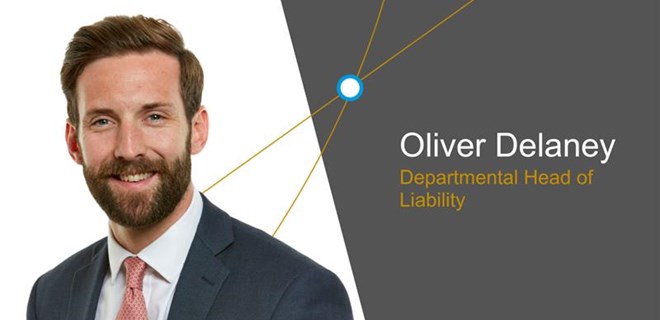
News

Humanity Insured, an international non-profit, launches to bring insurance-led climate resilience to 3.6 billion people
Thursday, September 19, 2024
- Humanity Insured will make the financial safety net of insurance accessible to climate vulnerable communities. It will do this by paying a proportion of insurance premiums, empowering individuals to prepare themselves for climate-related disasters.
- Humanity Insured is led by the insurance market with seed funding from seven global insurance organisations, including Howden, Allianz, Hiscox, The Fidelis Partnership, Tokio Marine Kiln and Beazley.
- Humanity Insured has made a 2024 Commitment to Action in partnership with the Clinton Global Initiative.
- Humanity Insured has approved grants to UNHCR, One Acre Fund, and Mama Bank to mobilise insurance protection for communities facing drought and heavy rainfall. The catalysing power of these grants means that for every dollar granted, 33 dollars are now made available to these communities.
London, 19 September 2024: Humanity Insured, a UK and US non-profit, launches to empower at-risk communities to build climate resilience through effective insurance solutions. Backed by the insurance sector, Humanity Insured’s mission is to leverage private and philanthropic capital at scale to unlock insurance protection for the 3.6 billion people living on the climate crisis frontline1. Humanity Insured has made a 2024 Commitment to Action with the Clinton Global Initiative2 to deliver on its mission.
Climate resilience starts with financial resilience
Humanity Insured addresses the urgent need for the most vulnerable communities to prepare and protect themselves from the devastating impacts of climate change. It pays a proportion of insurance premiums so the people most threatened by climate change have an insurance safety net.
The ever-present threat of climate shocks and stresses destabilises lives and livelihoods, forcing those at risk into survival mode as financial assistance is not reliably available and often arrives too late.
Insurance protection builds climate resilience by restoring certainty and financing recovery. Through innovative satellite triggered insurance, money gets to where it is needed fast, preventing disasters from becoming crises. The certainty that one is financially equipped to manage climate shocks affords self-reliance even before the impact is felt. It generates confidence that enables people to focus on the future, spurring a virtuous cycle of prosperity as people invest in everything from education to climate-resilient farming techniques. Beyond insurance protection, Humanity Insured provides funding for resilience tools and training for insured communities to adapt and manage climate threats to their livelihoods.
Charlie Langdale, Chief Executive of Humanity Insured, said: “Everyone should know the security that insurance brings as that security is what empowers people to invest in their livelihoods. This is an essential response in an ever -more volatile world that relies on post-event funding. Humanity Insured will not only stop families adopting negative coping strategies after climate shocks, but by being financially prepared the most unprotected are able to pre-emptively manage the climate risks they face.”
Making insurance effective and accessible
Howden, the international insurance intermediary group, convened the insurance industry to establish Humanity Insured. It received seed funding from seven global insurance businesses, including Howden, Allianz, Hiscox, The Fidelis Partnership, Tokio Marine Kiln and Beazley.
Delivering on Humanity Insured’s ambition and ensuring independence is a Board of experts in development, finance and climate. Since receiving UK charitable status in July 2024, Humanity Insured’s Board has approved three grants for communities in East Africa and the Pacific.
- UNHCR, the UN Refugee Agency, will fund a portion of the premium for innovative drought insurance for the growing season in Malawi which begins in November. It will also finance a community resilience-building programme that builds the capacity of refugees and local smallholders to make the most productive use of the limited land available. The insurance and resilience programme will help those in the Dzaleka refugee settlement and local Malawians to manage the economic impacts of drought, preventing food insecurity and sustaining livelihoods.
This is the start of a broader, long-term collaboration between UNHCR and Humanity Insured. Emma Cherniavsky, Chief Executive, UK for UNHCR, explained: “In a world where displaced people are among the most vulnerable to climate change and locked out of financial systems, Humanity Insured plays a crucial role in providing innovative insurance protection that empowers these communities to rebuild their lives with dignity and hope. Supported by Humanity Insured’s leadership and expertise in this space, we hope to expand equitable access to this essential insurance as part of UNHCR’s global humanitarian work, strengthening the resilience of displaced communities against climate-induced crises.”
- A grant to help One Acre Fund, a social enterprise operating in East Africa, to subsidise an agricultural insurance program for over 200,000 Kenyan smallholders. In the event of poor harvests, the insurance provides a cash payout to each farmer, enabling them to pay for household necessities and agricultural materials for the next planting season. One Acre Fund Board Member Joel Ackerman stated “Over 90% of smallholder farmers – who represent 84% of farms worldwide – remain uninsured and face poverty traps due to more frequent and severe climate shocks and the lack of available tools to mitigate them. With assistance from Humanity Insured we can create a robust safety net for Kenyan smallholders, allowing them to invest in their farms, secure in the knowledge that they are protected from the unpredictable economic impacts of climate change. This creates financial resilience, stability and strengthens global food security.”
- A grant to Mama Bank, the first Women’s Micro Bank in the Pacific, to subsidise insurance protection that delivers rapid financial relief to small businesses and farmers — 80% of whom are women — impacted by drought and excessive rainfall. This is the first insurance intervention of this kind in Papua New Guinea (PNG). Gunanidhi Das, CEO of Mama Bank, emphasised, “This initiative empowers female-led businesses in PNG by granting them access to insurance protection for the first time, affording them the certainty they need to protect and grow their livelihoods despite climate stresses. This insurance tool is vital for fostering resilient and equitable development in the communities that need it most, including women disproportionately affected by climate change.”
LATEST NEWS

TMK appoints Oliver Delaney as Departmental Head of Liability
16 April 2025
TMK announces it has appointed Oliver Delaney as Departmental Head of Liability with immediate effect, as it continues to cement its role as a market leader in the class.

Tokio Marine Kiln announces the appointment of James Wilson as Head of Special Risks
27 March 2025
James takes up his new role in the autumn and will report into Vivek Syal.

Tokio Marine Kiln announces new hires in Fine Art and Life Sciences to drive growth ambitions
03 March 2025
Tokio Marine Kiln (TMK), a leading international specialty insurer, has today announced the appointments of Jake Burgess as Fine Art and Specie Underwriter and Ella Henderson as Life Sciences Underwriter.